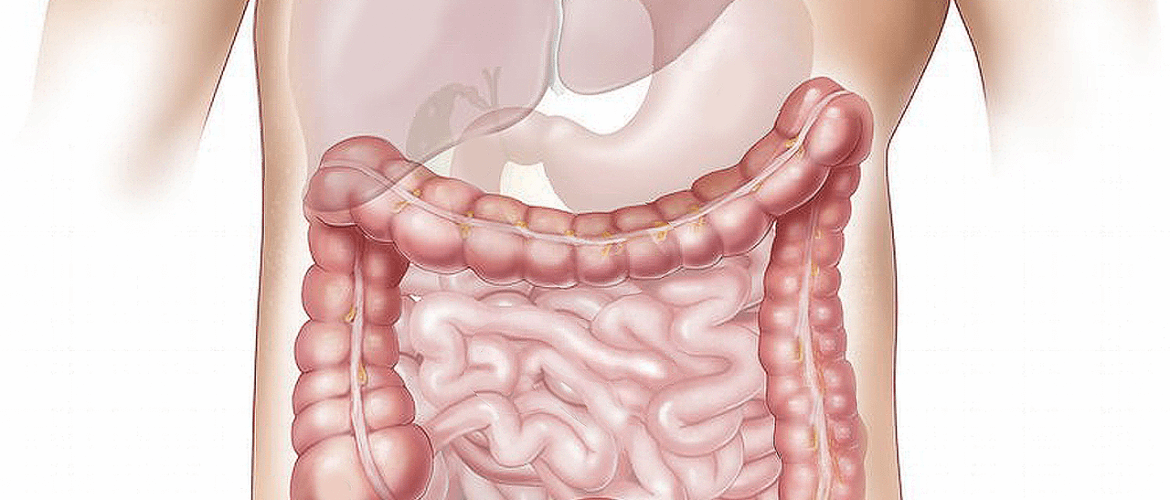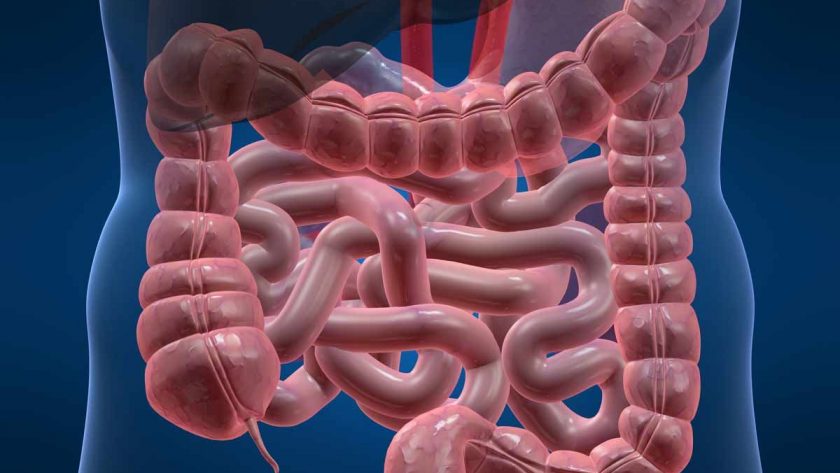Whether vegetarian, vegan or meat eater – our intestines can do more than just digest. It is often referred to as the second human brain and is said to have a significant impact on our state of mind and health. But to what extent can the intestine influence our emotions? And how can we keep our intestines healthy?
Intestines and digestion
Often the intestine is perceived as a pure digestive organ. The small intestine breaks down the already pre-digested chyme into its components, protuberances in the intestinal mucous membrane transport the nutrients into the blood and into the lymph. What cannot be used by the body initially ends up in the large intestine and remains there for between 15 and 50 hours. During the stay in the colon, a lot of water is withdrawn from the food pulp. The removal of water turns it into a firmer mass and the intestines then excrete the nutrient-free residues through the anus. Provided that both sphincters give the green light.
However, the intestine can do more than just absorb nutrients – it acts as a kind of second brain, which influences our emotions and is crucial for our health. It is known as the enteric nervous system and has 100 million nerve cells. Not even our peripheral nervous system, which sends information from the brain to parts of our body, has that number of nerve cells. In addition, the intestine is 100 times the size of our skin and is home to around 2/3 of the immune system.

On good terms – intestines and brain
“Butterflies in my stomach”, nausea before an exam or “Stress hits my stomach”. Each of you has probably already experienced one or the other phenomenon on your own body. In fact, the psyche can affect the gastrointestinal tract and cause physical reactions. In the meantime, science has found that this connection is not only one-sided – the gut can also influence the brain and our emotions. This is achieved primarily via the vagus nerve. This is the tenth cranial nerve, which is responsible, among other things, for the heartbeat. However, for the intestinal nervous system and the brain to work together, they must be able to communicate. This is achieved via shared neurotransmitters: with the help of the transmitter, information can be carried from one nerve cell to another. From the intestine to the brain and vice versa.
Example: A neurotransmitter is the hormone serotonin, which is used both in the brain and in the intestine. People with depression are often given drugs that are designed to increase serotonin levels in the brain. In this case, an increased serotonin level has positive effects on the brain – but the intestine cannot do anything with the plus of neurotransmitters. His sensitive system is disturbed and the transmission of information negatively affected.
Gut health – why is it so important?
Utilize food, keep the immune system stable, influence emotions – in order to be able to master this multitude of tasks, the intestinal flora must be intact. Exactly how a healthy intestinal flora looks is controversial. However, science assumes that the intestine functions in a similarly complex way as an ecosystem in nature – and that a high diversity of bacteria is important. If the ecological weight of the intestinal flora changes from weight, this can favor the development of mental illnesses and weaken the immune system. With such a disturbed bowel, colon cleansing could be an option. Further consequences in connection with a disturbed intestinal flora can be:
- Diarrhea, constipation, flatulence and abdominal pain
- Irritable bowel syndrome
Development of allergies
- Mental stress
- Chronic inflammatory bowel disease
Healthy diet = healthy bowel?
In order for the intestines to function properly, the many bacteria must be kept happy. However, this is not easy nowadays, because our everyday life is often very stressful. Usually this has the consequence: little exercise and a lot of unhealthy diet. The combination of these two factors in particular causes problems for the intestines, which is why you should ensure sufficient exercise and a diet rich in fiber.
Unhealthy diet leads to a disturbed digestive tract?
Unhealthy diet – this usually refers to highly processed foods that are high in sugar and unhealthy fats. These ensure a changed climate in the intestine and thus drive out the “good” bacteria. Good bacteria, for example lactobacteria and bifidobacteria, keep the immune system stable and ensure successful nutrient absorption. They also fight “bad” bacteria and prevent their spread. If we consume a lot of unhealthy foods, the environment of the intestinal flora also changes and the good bacteria feel less comfortable. It is now replaced by bacteria that are not good for us and that promote inflammation. The harmful bacteria create toxic waste products, while at the same time there are fewer bacteria that can counteract this development. As a result, our organism is stressed and the immune system is weakened. Unhealthy foods also have an impact on the intestinal mucosa – it becomes more permeable and thus allows nutrients and harmful substances to pass through.
Especially when everyday life is hectic, psychological stress can hit our stomachs. In addition, we often have less time to deal with healthy eating. Some time ago we tested a product for you, which is why we would like to recommend it to you at this point. The product contains nine strains of bacteria that promote healthy intestinal lining and prevent the spread of bad bacteria. We found that each of us noticed something about the bacteria – two felt fit and relaxed a short time after ingestion, while one had mood swings. One can conclude from this that the effectiveness of the product is individual and everyone should decide for themselves whether they consider the product suitable.

Exercise and intestinal health
In addition to a balanced diet, you should also make sure you get enough exercise. If we do not move enough, the digestive organs are less well supplied with blood and the activity of the gastrointestinal tract decreases. Constipation and gas are often the result. The food pulp represents a further risk if there is too little exercise. It takes more time to cross the intestine and thus lingers longer in the digestive organ. The result: harmful substances are on the move in our organism for longer and degradation products can arise that harm our body.
Summary: Stress in everyday life often not avoiding each other – nevertheless we should pay attention to a balanced diet and sufficient exercise. Both factors make a significant contribution to our intestines feeling good. Your immune system and digestion can function better, you prevent a bad mood and can face stressful everyday life more relaxed. You can find healthy recipe ideas in our fitness cookbook or under the healthy recipes category. For more information on the subject of the intestine and how it works, we recommend the book “Gut mit Charme”:




